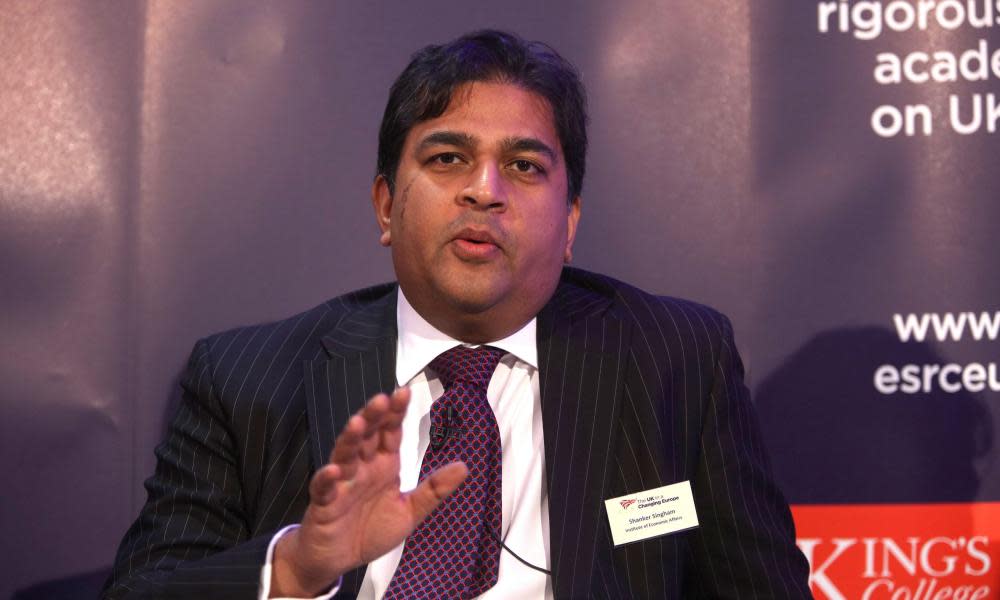PM urged to drop Chequers in order to win 'Brexit prize'

The author of a new plan for Brexit backed by senior pro-leave Conservatives has urged the government to abandon the Chequers proposal, saying it would leave a post-departure UK unable to benefit economically from its new place in the world.
Shanker Singham from the Institute for Economic Affairs (IEA) thinktank, who was to launch the plan later on Monday, said Theresa May’s Chequers proposal had approached Brexit “from the wrong end of the telescope” by failing to examine its global impact.
May had talked of a “Brexit prize” in her Lancaster House speech, Singham told BBC Radio 4’s Today programme, but the extent of continued alignment with the EU needed in Chequers lost this.
“Our approach is: well, what is that prize?” he said. “I think that prize is entirely to be found in your independent trade and regulatory policy. It is nowhere else. If you don’t have an independent trade and regulatory policy as you leave the EU, then this is only a damage limitation exercise. It can only be a bad result.”
Under the IEA proposals, the UK would seek a “basic” free trade agreement for goods, with the government also opening simultaneous discussions on securing long-term free trade deals with countries including the US, China and India.
The EU deal would be initially based on convergence, with “mechanisms to mitigate or manage the differences as you go forward”, Singham said.
The former Brexit secretary David Davis, who quit the government over the Chequers plan, and Jacob Rees-Mogg, the chairman of the pro-Brexit Tory European Research Group, are among the speakers listed for the report’s launch in London.
One of the key objections to such free trade-based Brexit plans has been how to avoid a hard Irish border.
Singham insisted this was possible: “Our proposal is designed to avoid a hard border in the island of Ireland, and we have an extensive section on how you would deal with the Irish border, which would include a number of customs-related mitigants.”
This would involve a range of elements, including the use of technology, and of trusted trader scheme, he said.
“We are talking about things on the Irish border that actually operate in the rest of the world,” he said. “Every day these mechanisms are used, and we believe that together – there’s no one thing we would do – if you do all of the things we suggest, you will avoid hardening the border.”
The report argues that under Chequers, it would be “all but impossible” for Britain to conduct an independent trade policy.
“The UK running its own economy will not render a deal with the EU impossible,” it says. “It will bring back real growth, let the UK do other trade deals, and create leverage to get positive results from EU negotiations.”
It says Britain should seek to keep the elements of the withdrawal agreement which have already been agreed, including those covering citizens’ rights, the “divorce” bill and the 21-month transition period after the UK leaves in March 2019.

 Yahoo News
Yahoo News 
